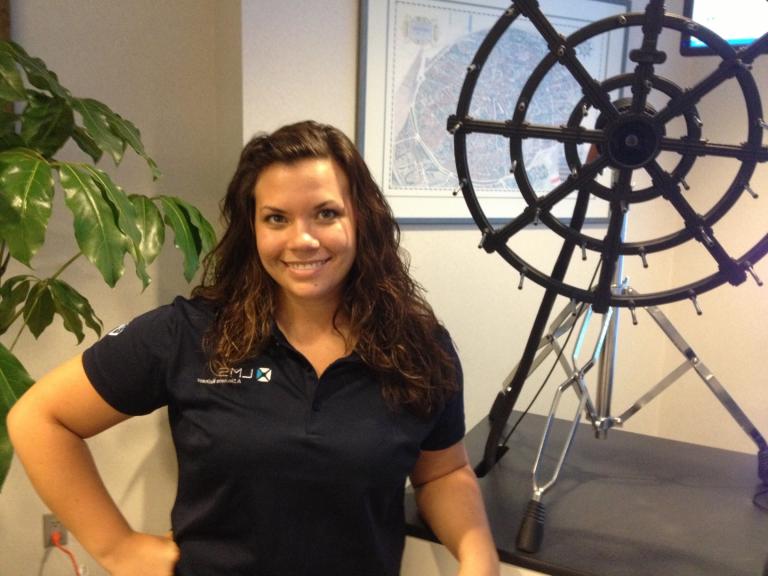
“I’m not a car junkie. I’ve become a bit more interested in cars, but in my current position, I get to see a lot of different things and see how they are affected by the environment around them.”
Unlike many Kettering University students, Mackenzie Stratton is not interested in working with automobiles or for an automotive company. Instead, she is attracted to studying mechanical engineering at Kettering to discover environmental interactions of machines and systems.
“I didn’t want to come to Kettering and work for an automotive company,” Stratton said. “I’m not a car junkie. I’ve become a bit more interested in cars, but in my current position, I get to see a lot of different things and see how they are affected by the environment around them.”
Stratton works for the technical software division in Siemens, known as LMS North America, in Troy, Mich., that offers solutions for noise, vibration and harshness. The department performs modal analysis to determine the modes and resonances of structures to assist companies to discover solutions to structural challenges to stop undesirable vibration frequencies, among other things.
“Every structure vibrates and, for instance, on a car, they might test the housing around the transmission,” Stratton said. “They might conduct a modal test to figure out what frequencies the housing vibrates at to create a resonance. If a structure operates at a resonance for too long, it can fail.”
Stratton also assists with simulations and acoustic testing to determine how loud an automobile engine is inside of a car, as an example. The structures LMS analyzes span the automotive, aerospace and defense (Army, Navy, Air and Air Force) industries and also include off-road vehicles and house appliances.
Stratton began working for LMS in June 2011 in the licensing and installation department before she even stepped into a classroom at Kettering. Since then, she has also worked in shipping and is currently focused on simulation.
“I became interested in the simulation product because we offer training classes for our software and I became really interested in the motion portion of our simulation software,” Stratton said. “I learned how to use our simulation package. I get to visit customers to see how they apply it (software).”
A rewarding part of Stratton’s co-op experience has been growing her role and responsibilities at LMS and being able to apply her mechanical engineering education at Kettering to her professional work.
“For a while it was hard to bring them (education and work) together because I learned a lot of things at my company that you don’t generally learn in college,” Stratton said. “Now that I have taken some of my higher level math and physics classes, I have been able to apply things, like the mass-damper equation, in real life. Watching the math happen in real life is really cool.”
Stratton grew up in Burton, Mich., and became interested in engineering after joining the FIRST robotics program and attending a Lives Improved Through Engineering (LITE) camp at Kettering. LITE is a two-week residential program created by Kettering University to introduce 11th grade girls to what engineers do and how they significantly improve people’s lives by applying math, science and technology to human problems.
“After attending the LITE program, that’s when I made up my mind to attend Kettering,” Stratton said.
Stratton is enjoying her co-op experience at LMS and strongly feels that her education and professional experience is ultimately leading her towards her childhood dreams and aspirations.
“I do really want to work with airplanes, jets and helicopters,” Stratton said. “And one of my dreams always has been to work for NASA.”